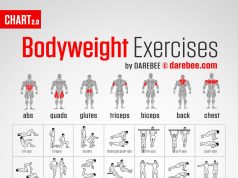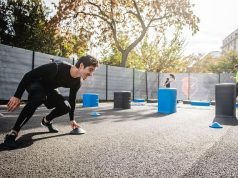In the ever-evolving world of sports, where milliseconds define legends and inches separate triumph from defeat, athletes are in a relentless pursuit of excellence. Among the myriad of training techniques that promise to unlock the potential within, strength training stands as a formidable pillar, offering a foundation upon which peak performance is built. This ancient practice, once reserved for the realm of bodybuilders and weightlifters, has transcended its origins, finding a revered place in the regimen of athletes across disciplines. From sprinters to swimmers, from the basketball court to the soccer field, strength training is redefining the boundaries of what is possible. This article delves into the transformative power of strength training, exploring how it enhances athletic performance, fortifies resilience, and ultimately, paves the path to greatness.
Building a Foundation: Core Principles of Effective Strength Training
At the heart of any successful strength training regimen lies a set of fundamental principles that guide athletes towards achieving peak performance. These principles are not just abstract ideas but practical tenets that shape every workout session. Consistency is paramount; regular training sessions build muscle memory and improve endurance. Progressive overload, the gradual increase of stress placed on the body during training, is essential for continuous improvement and muscle growth.
- Specificity: Tailor your workouts to meet the demands of your sport.
- Variation: Introduce new exercises and routines to prevent plateaus and maintain interest.
- Recovery: Allow adequate rest and nutrition to enable muscle repair and growth.
By embedding these core principles into your training routine, you lay a strong foundation for enhanced athletic performance. Each principle acts as a building block, collectively supporting your journey towards strength, agility, and resilience. Remember, it’s not just about lifting weights; it’s about lifting your potential.

Tailoring Workouts: Customizing Regimens for Sport-Specific Gains
In the realm of athletics, one size does not fit all. To maximize athletic performance, it’s crucial to design strength training regimens that are tailored to the specific demands of each sport. This customization involves a deep understanding of the unique movement patterns, energy systems, and muscle groups utilized in the sport. By focusing on these elements, athletes can achieve targeted improvements that translate into enhanced performance on the field, court, or track.
- Movement Patterns: Identify and train the key movements used in your sport. For example, basketball players might focus on explosive jumps, while swimmers emphasize upper body strength and endurance.
- Energy Systems: Different sports rely on various energy systems. Sprinters benefit from anaerobic training, while endurance athletes should focus on aerobic capacity.
- Muscle Groups: Prioritize strengthening the muscle groups that are most active in your sport. Soccer players might target leg strength, whereas a tennis player could focus on shoulder and core stability.
By integrating these components into a tailored strength training program, athletes can ensure that their efforts are not only effective but also efficient, leading to sport-specific gains that propel them toward their performance goals.

Nutrition and Recovery: Fueling the Body for Optimal Performance
In the realm of strength training, nutrition plays a pivotal role in ensuring that athletes achieve peak performance. The right balance of nutrients not only fuels the body but also aids in muscle recovery and growth. Key components include a combination of protein, carbohydrates, and healthy fats. Protein is essential for muscle repair and growth, while carbohydrates replenish glycogen stores, providing the energy needed for intense workouts. Healthy fats support hormone production and overall cell health.
- Protein Sources: Chicken, fish, eggs, legumes, and plant-based proteins like tofu.
- Carbohydrates: Whole grains, fruits, vegetables, and quinoa.
- Healthy Fats: Avocados, nuts, seeds, and olive oil.
Incorporating a well-rounded diet with these elements can significantly impact recovery time and overall performance. Hydration is another critical factor; maintaining adequate fluid levels ensures optimal muscle function and reduces the risk of injury. By prioritizing nutrition, athletes can maximize their strength training benefits and enhance their athletic prowess.
Avoiding Pitfalls: Common Mistakes and How to Overcome Them
Embarking on a strength training journey to boost athletic prowess can be fraught with challenges. Here are some common mistakes athletes make and how to sidestep them:
- Neglecting Form: Many athletes prioritize lifting heavier weights over maintaining proper form. This can lead to injuries and hinder progress. Focus on technique first and gradually increase the load as you master each movement.
- Overtraining: The drive to improve can sometimes lead athletes to train excessively without adequate rest. This not only stalls progress but can also cause burnout. Incorporate rest days and listen to your body’s signals to ensure optimal recovery.
- Ignoring Nutrition: Fueling the body is as crucial as the workout itself. Some athletes overlook the importance of a balanced diet rich in proteins, carbohydrates, and healthy fats. Tailor your nutrition to support your training goals and recovery needs.
- Skipping Warm-ups: Diving straight into intense workouts without a proper warm-up can increase the risk of injury. Integrate dynamic stretches and mobility exercises to prepare your muscles and joints for the session ahead.
By being mindful of these pitfalls, athletes can pave a smoother path toward enhanced performance and long-term success.






























